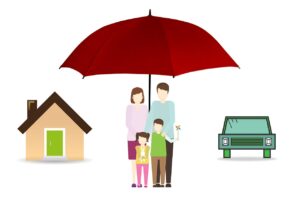This week’s top story: What Trump and Harris have in store for your taxes. In other news: Credit card-bonus-friendly season is here, October mortgage outlook, and drawbacks to consider before getting metal credit card.
What Trump and Harris Have in Store for Your Taxes
Most, if not all, of the candidates’ tax proposals would need approval by Congress.
If You’re Considering a Credit Card, Bonus-Friendly Season Is Here
The October-through-December holiday window is an especially ideal time for snagging a rich welcome offer.
October Mortgage Outlook: No Rate Jumps or Scares
Mortgage rates may idle above 6% until markets and the Fed catch up.
Is Your Metal Credit Card Losing Its Edge?
Once a rare luxury enhancement, metal credit cards are more attainable for the average consumer today. And there are drawbacks to consider before getting one.
 This week’s top story: The busiest travel days around Thanksgiving. In other news: 4 social media money trends worth knowing about, what happens when the Fed finally cuts rates, and weekly mortgage rates drop.
This week’s top story: The busiest travel days around Thanksgiving. In other news: 4 social media money trends worth knowing about, what happens when the Fed finally cuts rates, and weekly mortgage rates drop. This week’s top story: 3 side gigs for full-time working moms. In other news: Two key student debt relief programs expire Sept. 30, weekly mortgage rates, how to score a low personal loan rate in 2024.
This week’s top story: 3 side gigs for full-time working moms. In other news: Two key student debt relief programs expire Sept. 30, weekly mortgage rates, how to score a low personal loan rate in 2024. This week’s top story: First-time home buyer affordability report – Q2 2024. In other news: September mortgage outlook, weekly mortgage rates drop, and pay interest while in school.
This week’s top story: First-time home buyer affordability report – Q2 2024. In other news: September mortgage outlook, weekly mortgage rates drop, and pay interest while in school. This week’s top story: 6 milestones and how they might change your life insurance needs. In other news: First EV road trip, weekly mortgage rates, and how to land the financial helicopter to support grown kids.
This week’s top story: 6 milestones and how they might change your life insurance needs. In other news: First EV road trip, weekly mortgage rates, and how to land the financial helicopter to support grown kids.